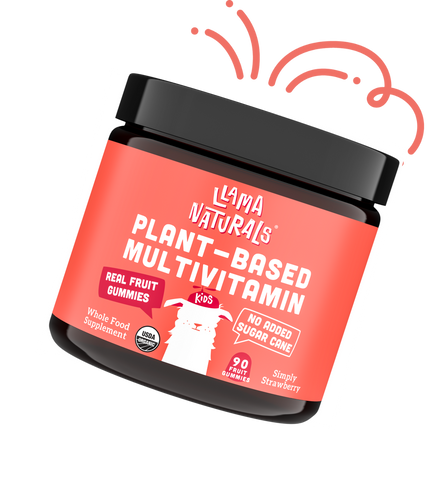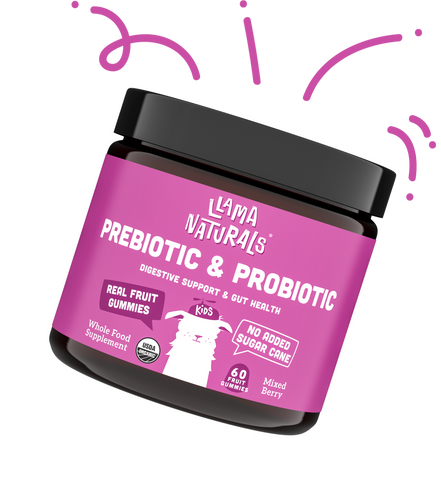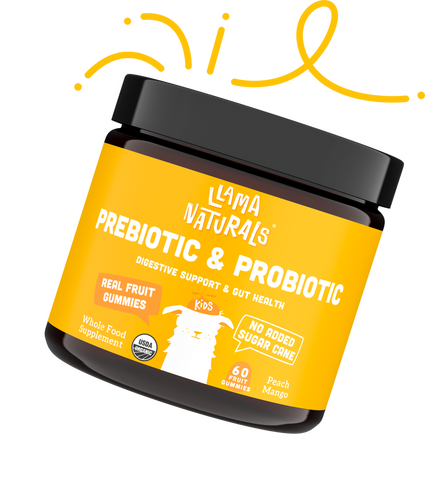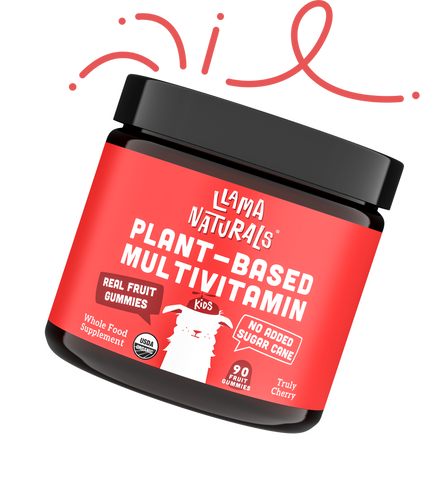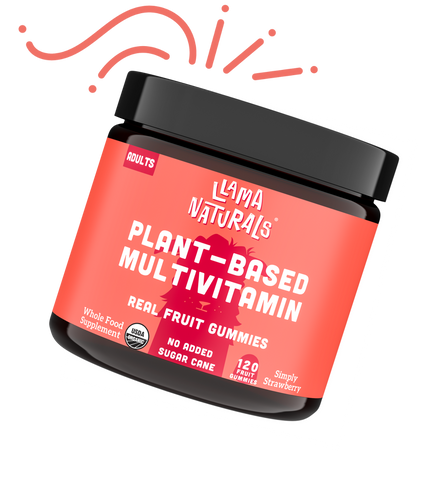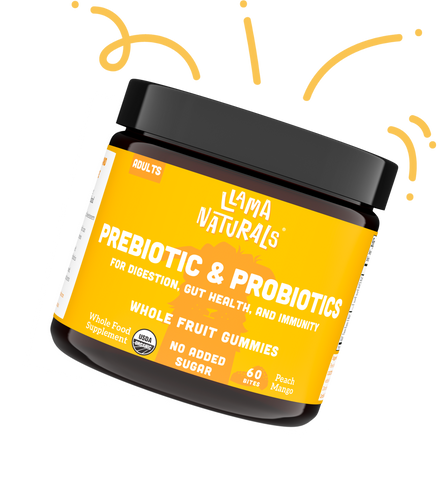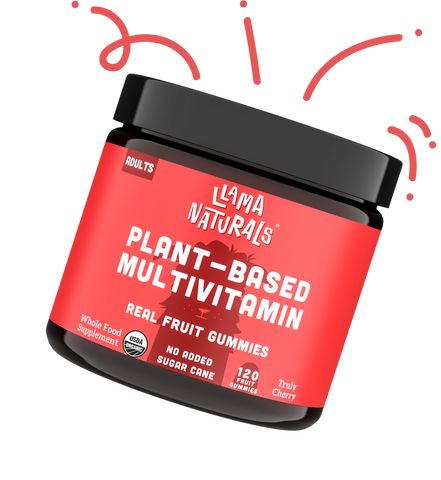Can Kids Take Melatonin? Here’s What You Need to Know

Key Points:
- Can kids take melatonin? Short-term use of melatonin to manage sleep problems in kids appears to be safe. However, there are no clearly credible studies on the long-term effects of melatonin on kids’ health.
- Other options such as good sleep hygiene can also contribute to a good night’s sleep.
- Adequate nutrient intake can also help children sleep better.
It’s another one of those nights. You’re awakened by your daughter’s frantic cries at 1 am. She can’t sleep, again, for the third time in a row. What follows is hours of back-and-forth attempts to try and get rid of the bedtime monsters. By the time you manage to do so, it’s almost daybreak. All you want to do is snuggle back to bed knowing so well that sleep deprivation will take a heavy toll on both of you during the day.
This is a situation most parents are familiar with. Many children experience trouble falling asleep at night. For some, staying asleep is a challenge. When it becomes harder to sleep, parents think about giving their children melatonin supplements. The big question is: Can kids take melatonin?
The simple answer is yes. But, you need to know some things before giving your child melatonin. There’s heated debate whether or not melatonin is safe for kids. Try consulting the infamous Dr. Google, and you’ll find a ton of conflicting information. Luckily, we’re here to filter through the fluff and give you credible information. Before you give your child melatonin, here are the things you need to know.
What Is Melatonin?
Have you ever wondered why you feel sleepy at around the same time every night? It’s not by default. There’s some science behind your regular bedtime routine. Melatonin, a hormone produced by the pineal gland in the brain, is responsible for your bedtime routine.
Melatonin is a hormone that controls your sleep-wake cycle. It does so by regulating something known as the circadian rhythm. Circadian rhythm is a sort of biological clock that tells your body when it’s time to sleep or wake up. At night, darkness usually increases melatonin production, making you sleepy. During the day, the levels of melatonin tend to drop and that’s how you manage to stay awake.
Melatonin production occurs naturally. However, some people experience sleep problems due to certain conditions that affect melatonin production or the ability to stay asleep. Sleep issues are common in children.
Some causes of sleep problems in children include:
- Stress and anxiety
- Irregular bedtime routine
- Use of electronics late into the night
- Caffeine or sugar intake, especially late at night
- Nutritional deficiencies
- Poor sleep environment, for instance, the bedroom is too hot or too bright
- Lack of exercise or time outdoors
- Asthma
- Depression
- Eczema
- Underlying sleep disorders like obstructive sleep apnoea, restless leg syndrome, parasomnias
- Autism spectrum disorder
- Attention deficit hyperactivity disorder (ADHD)
Persistent sleep problems point people towards melatonin. In the United States, melatonin supplements are sold over the counter as a sleep aid. Many adults take melatonin supplements for sleep issues arising from causes such as jet lag to more serious sleep disorders.
The supplements improve the quality and duration of sleep by boosting levels of the hormone in the brain. Melatonin’s popularity prompts many parents to consider it as a sleep aid for their children. If this is you, you’re probably uncertain about whether to give your child melatonin. But don't worry. We're here to help you solve the puzzle.
Can Kids Take Melatonin?

According to the United States National Institute of Health, short-term use of melatonin is safe for children in some cases. A meta-analysis of the safety of melatonin for treating sleep-onset insomnia in children concluded that melatonin was tolerable in the short-term.
However, there isn't enough research on the long-term effects of melatonin. Some experts claim that since melatonin is a hormone, its use may affect your child’s hormonal development and transition into puberty, but no published studies we could find have confirmed such claims.
From where we stand, melatonin appears to be safe for short-term use. Long-term use of melatonin is still questionable but may be considered in certain cases such as childhood sleep disorders.
Note: Consult your child’s pediatrician for medical advice before using melatonin. The pediatrician can help you establish the cause of your child’s sleep issues and decide whether they should take melatonin as a sleep aid. They can also help you address the underlying problem so your child can sleep better.
Possible Side Effects of Melatonin
Melatonin is a hormone. As much as it’s sold as a dietary supplement, it's not free from side effects like other products in that category. It's important to understand the side effects of melatonin before using it to fix your child’s sleep issues.
Potential side effects of melatonin include:
- Drowsiness
- Headaches
- Increased bedwetting
- Dizziness
- Morning and daytime sleepiness
- Mild anxiety
- Rarely, abdominal pain
The side effects of melatonin are magnified in cases of melatonin overdose. Symptoms of melatonin overdose include vomiting, fatigue, hallucinations, delusions, and disorientation.
A common cause of melatonin overdose is inappropriate storage of the supplements. Make sure the supplements are stored away from your children’s reach.
Another cause of melatonin overdose is excess melatonin content of the supplements. Since the FDA regulates supplements differently and less strictly than food and prescription drugs, it’s easy for manufacturers to slack on quality control. A report by the American Academy of Sleep Medicine revealed that the melatonin content of most dietary supplements often varies from what is listed on the labels. Some ingredients used in making the supplements are also questionable.
What’s the Correct Dose of Melatonin?

With the limited clinical studies, there’s not much information regarding the appropriate doses of melatonin. However, don’t be that parent relying on trial and error to help your child catch some zzzs. The Canadian Paediatric Society recommends the following doses:
- Infants: 1 mg
- Older children: 2.5–3 mg
- Adolescents: 5 mg
It’s important to start with the lowest dose possible. Too much melatonin can have the opposite or exaggerated effects. Since melatonin affects the sleep-wake cycle, your child may either have trouble falling asleep the next night or experience daytime sleepiness.
Safer Ways to Help Your Child Sleep Better
Before resorting to the use of melatonin, there are other interventions you should try out to address your child’s sleep issues. In that regard, it’s high time you introduce the phrase “sleep hygiene” to both you and your child’s vocabulary. Sleep hygiene encompasses healthy practices that promote better quality sleep. Here are some sleep hygiene measures:
1. Establish a Regular Bedtime Routine
Having a consistent sleep schedule will contribute a lot to your child’s sleep quality and duration. Adolescents are especially vulnerable to disruptions in their sleep schedules. As a parent, you’d want to allow your kids to stay up late or sleep in during the weekends. We get it. Binge-watching a few episodes of Super Monsters late into the night is a way for your family to bond. However, this is enough to trigger sleeping problems due to an alteration of the circadian rhythm.
Try to get your children to stick to a regular sleep schedule. They don’t have to sleep at the same time but within a given window of time.
2. Minimize Screen Time at Night
Electronic devices such as smartphones, tablets, and televisions emit blue light that interferes with melatonin production. Blue light confuses the brain’s natural sleeping mechanisms. In effect, the brain “thinks” that it’s still daytime and not yet time to sleep. Literature indicates turning off electronic devices at least 30-60 minutes before a child's sleep time can be beneficial. If your children must spend time on the screen before bed, consider getting them blue light glasses or turn on blue-light filters on their devices.
3. Optimize Your Child’s Sleeping Environment
Our body temperature usually falls for us to fall asleep. Children fall asleep faster in a cool environment. According to research, the ideal room temperature for optimal sleep is around 65 degrees Fahrenheit or 20 degrees Celsius. As part of good sleep hygiene, ensure your children’s rooms are cool enough for optimal sleep quality. In addition, make sure the room is dark enough. A sound machine may also help some children.
4. Other Lifestyle Changes
Other lifestyle modifications that may improve children’s sleep include:
- Exercise
- Spending time outdoors
- Avoid heavy meals prior to bedtime
- Limiting sugar and caffeine consumption, especially in the evening
- Relaxation techniques such as sleep meditation and warm baths
Other Supplements to Help Your Child Sleep Better

A wide array of vitamins promote healthy sleep. These include B Vitamins, Vitamin D, and Vitamin E. A 2018 study showed a link between Vitamin D deficiency and sleep disorders. Vitamins, especially the B vitamins, are important in the formation of melatonin. Research shows that magnesium supplements also improve sleep quality and duration.
You don’t want to compromise on the quality of supplements you give your kids. To avoid problems with such quality control issues, only purchase products from manufacturers with a proven track record of delivering healthy, natural products.
If you’re looking for somewhere to start, a brand like Llama Naturals produces the best natural health-supporting supplements, from vitamins to probiotics. Their award-winning gummies are made from organic fruit and vegetables with no added sugar, yet they still taste delicious.
Help Your Child Get the Rest They Need
Looking to improve your child’s quality and duration of sleep? Melatonin is a sharp sword in your scabbard to help you slay all the bedtime monsters. But maybe you still don't want to give your child melatonin. So what other options do you have?
Certain vitamins, like magnesium, B vitamins, vitamin D, and Vitamin E, may also help your child sleep well. You can also look to lifestyle changes, like creating a better bedtime routine.
If you’re looking for the perfect vitamin supplements for your kids, consider the natural whole fruit gummies from Llama Naturals. Llama Naturals has created a full line of healthy gummy vitamins. Their whole fruit gummy vitamins are made from real fruit and vegetables, slow cooked to retain their goodness.
The story doesn’t stop there. Llama Naturals’ whole fruit gummies are delicious so kids will love them. Plus, they contain no added sugar. With Llama Naturals, healthy and delicious co-exist to help your kids crave more of the right stuff.
Llama Naturals is a plant-based nutrition brand that has created the World's First Whole Fruit Gummy Vitamins that are made with no added sugar and whole-food vitamins. They are USDA Organic, Vegan, Gluten Free, free of common allergens, and are slow-cooked on low heat to retain rich phytonutrients & fruit flavor. It’s a win-win gummy vitamin that you and the family will love.

